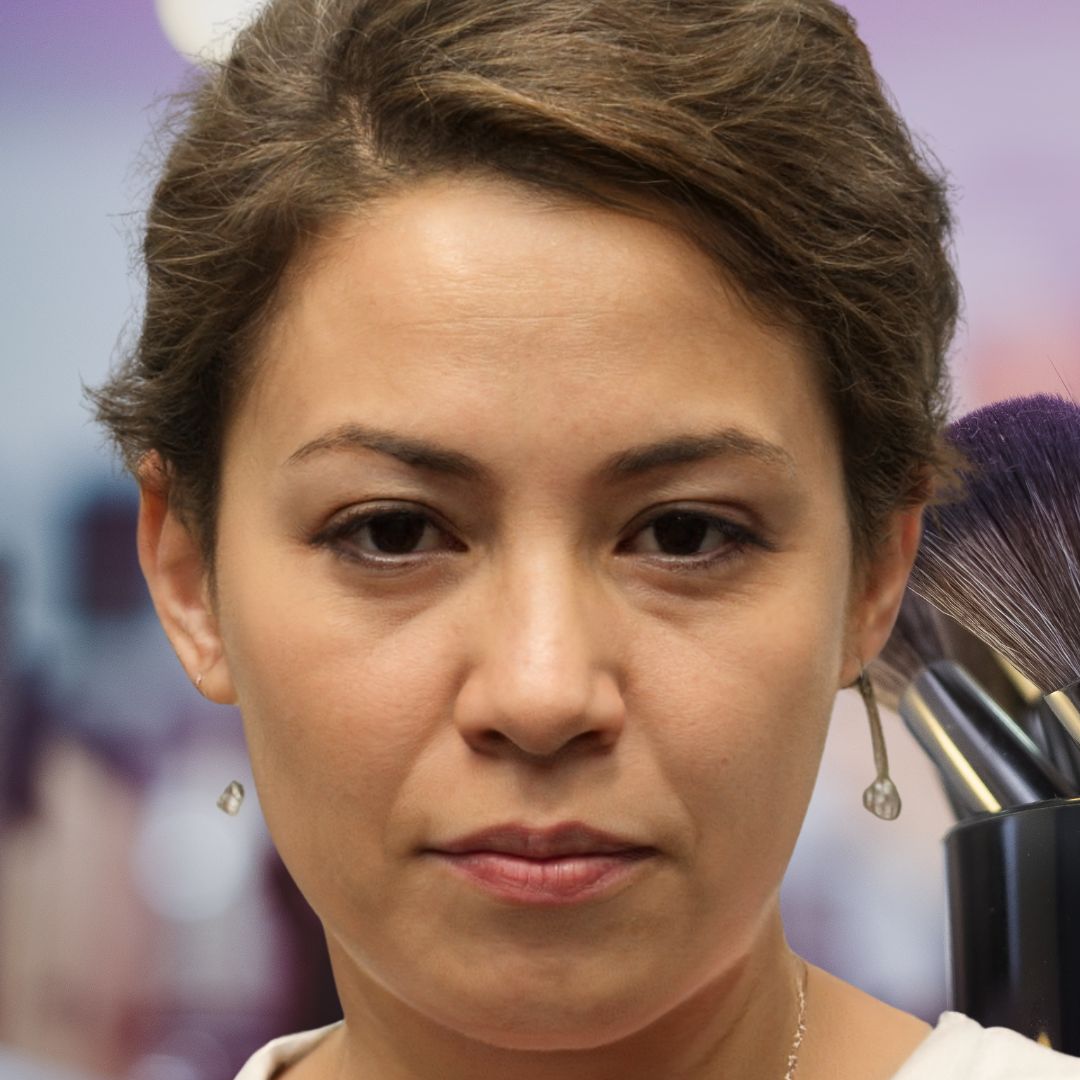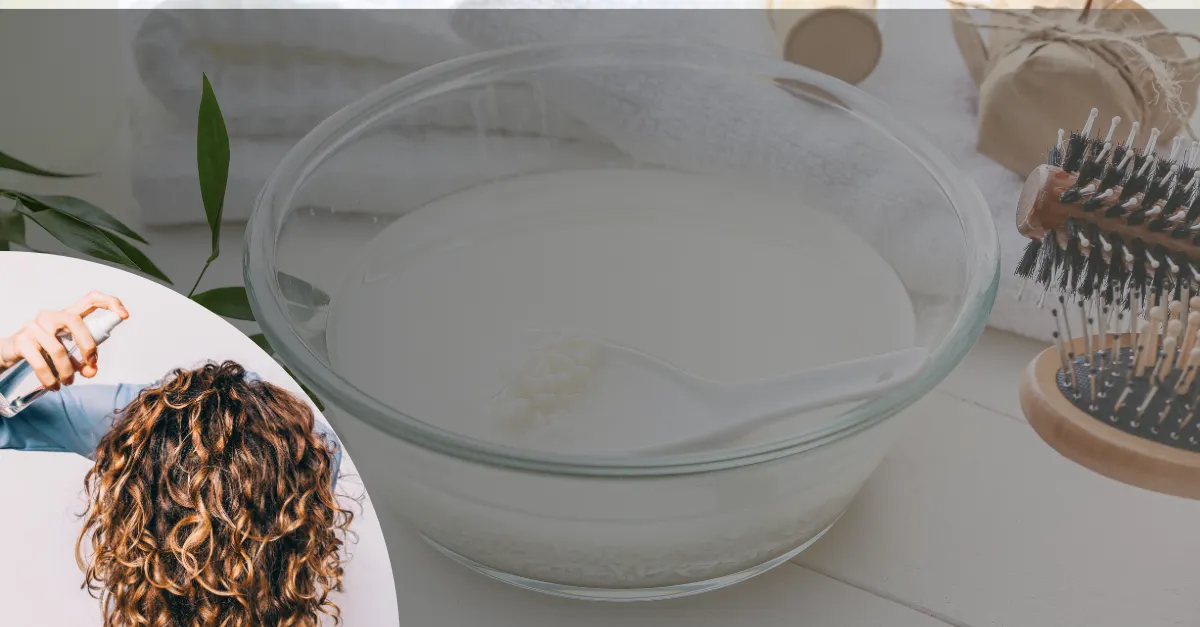Rice water has become the latest must-try ingredient for naturally beautiful hair. Using the starchy liquid left over after rinsing rice has been a hair care hack in many Asian cultures for centuries. Recently, rice water has exploded in popularity in the natural hair community.
The proteins, vitamins, and minerals in rice water are touted for repairing, strengthening, and growing hair. However, rice water is not a cure-all miracle treatment. Some significant side effects can occur, especially with frequent or improper use.
Before jumping on the rice water bandwagon, be aware of these 5 surprising side effects it can have on hair.
1. Itchy and Irritated Scalp
One of the most significant benefits of rice water is its protein content. Hair is made up mainly of a protein called keratin, so rice water provides building blocks for strengthening hair. However, too much protein can damage hair over time.
Rice water has high levels of amino acids like inositol, which can penetrate the hair follicle and cause irritation for some people. Leaving rice water treatments in too long allows excessive protein to build up, making the scalp itchy, dry, and inflamed. This reaction is essentially protein overload.
Start with only 5 minutes of contact time when applying rice water to your hair. Gradually work up to 15-20 minutes max as your hair adjusts and monitor for itchiness. Thoroughly rinsing out rice water instead of leaving residue is key for preventing irritation.
Look for other signs of protein overload like straw-like texture, breakage, and lack of elasticity. If itching occurs, scale back on rice water use and focus on moisture. Those with high porosity hair are more prone to protein sensitivity.
2. Increased Frizz and Flyaways
Using rice water is said to help smooth and detangle hair, sealing the cuticle for sleek, frizz-free locks. However, some people report the opposite effect, with frizz and fuzz increasing after using rice water.
The starch in rice water may leave a residue on hair that causes flyaways, static, and generally unruly hair, especially in humid weather. Frequently using rice water results in buildup, making hair more difficult to manage.
If you notice your hair becoming frizzier with rice water treatments, try switching to use just 1-2 times per month. Use clarifying shampoos periodically to remove residue. Avoid rice water on days you need smooth, sleek hair.
3. Fungal Acne Breakouts
While rice water may do wonders for the hair on your head, it could wreak havoc on your face, back, or chest. The sugars and carbohydrates found in rice water feed Malassezia, the fungus responsible for fungal acne.
When rice water comes in contact with skin prone to fungal acne, it fuels fungus overgrowth and increased inflammation. This leads to worsening of fungal acne lesions, rashes, and bumps on the skin.
After rinsing out rice water, immediately wash any skin that it touches to prevent fungal spread. Tie hair back during treatments and use anti-fungal shampoo if body acne occurs. Avoid letting rice water drip onto your body.
4. Allergic Reactions
Some individuals may experience allergic reactions to the proteins and carbohydrates in rice water. Redness, swelling, itching, and irritation can occur on the scalp, face, or body if you have an allergy.
Doing a skin patch test before applying rice water all over is recommended. Mix some rice water and dab it on your inner elbow or wrist. If itching, redness, or hives develop within 12-24 hours, you likely have an allergy.
Discontinue use if irritation occurs after larger applications. Seek medical treatment for severe reactions like rashes, difficulty breathing, or swelling of the face/throat. Those with known rice allergies should avoid rice water entirely.
5. Risk of Microbial Contamination
Using rice water inherently carries a risk of bacterial or fungal contamination, especially when prepared at home. Fresh rice water should not be left out at room temperature for more than 24 hours to prevent the overgrowth of microbes.
Reheating leftover rice water before use destroys some microbes. However, it is impossible to sterilize rice water made at home fully. Keeping hands, containers, and preparation tools extremely clean is crucial.
Avoid using rice water that smells odd or appears slimy/foamy, as this indicates contamination. Discontinue use if you experience any irritation, itching, or hair loss after using homemade rice water. Stick to small batches made fresh before each use.
Weighing the Pros and Cons of Rice Water
Rice water has some notable benefits for many people’s hair. The nutrient content provides many strengthening and reparative compounds hair needs to look its best. Rice water can improve hair’s texture, growth and thickness when used properly at an optimal frequency and contact time.
However, rice water is not right for everyone. Protein-sensitive hair may become drier and more brittle with frequent use. Some hair types see frizz increase instead of decrease with rice water. Those prone to fungal acne or known rice allergies should proceed carefully or avoid it altogether.
Carefully consider how your hair and skin respond before making rice water a staple in your routine. Start slowly, doing patch tests and leaving on for short intervals. Monitor closely for irritation, paying attention to contact time and frequency to find the sweet spot for your hair’s needs.
While a potential game-changer for many, rice water can also have surprising adverse effects. Weigh the pros and cons carefully to decide on your hair health and goals. With cautious, minimal use, rice water may provide benefits without unpleasant side effects for many people.

Maya serves as Editor-in-Chief of the Beauty section of HealthMagazineLab.com, bringing decades of industry expertise to uphold standards of accuracy and reliability for the publication’s millions of monthly readers seeking the latest beauty insights.

